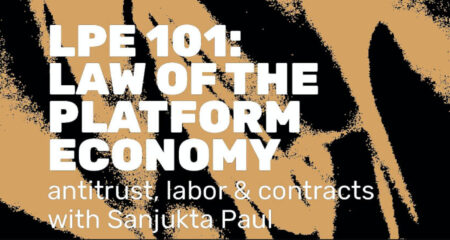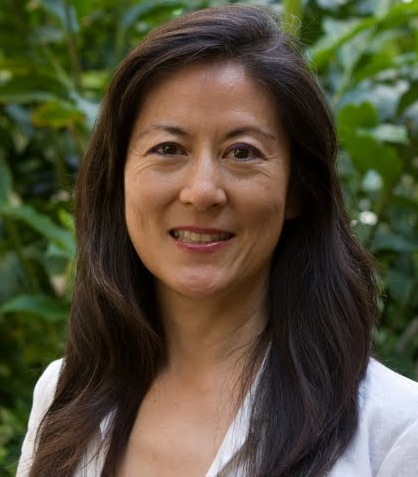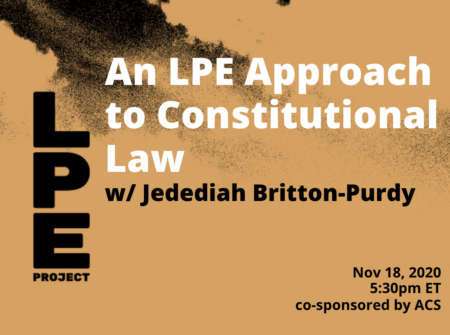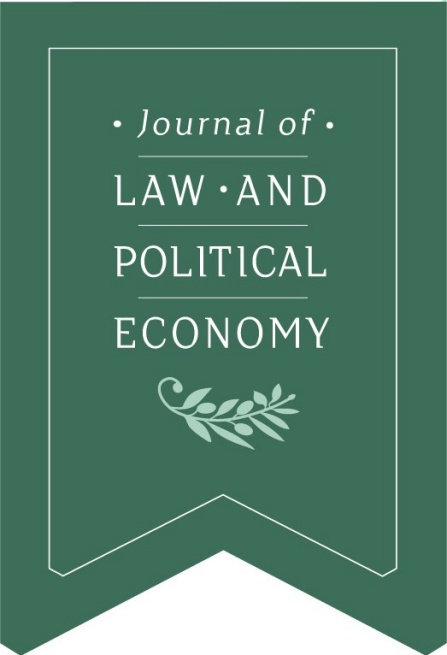
LPE 101 Course: Law of the Platform Economy with Sanjukta Paul
The LPE Project is teaming up with the American Constitution Society (ACS) to offer an online course introducing students to LPE analysis. This course will pair lectures and short readings that illustrate how LPE frameworks can help us examine law’s role in the perpetuation of racial and gender injustice, the devaluation of social and ecological…









